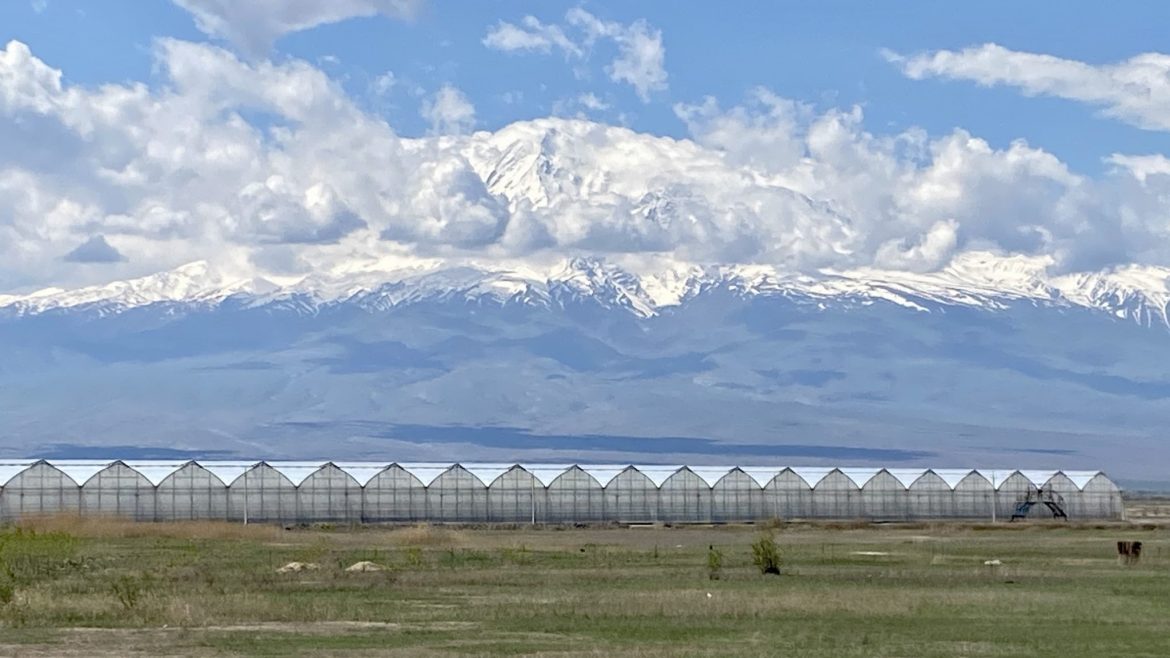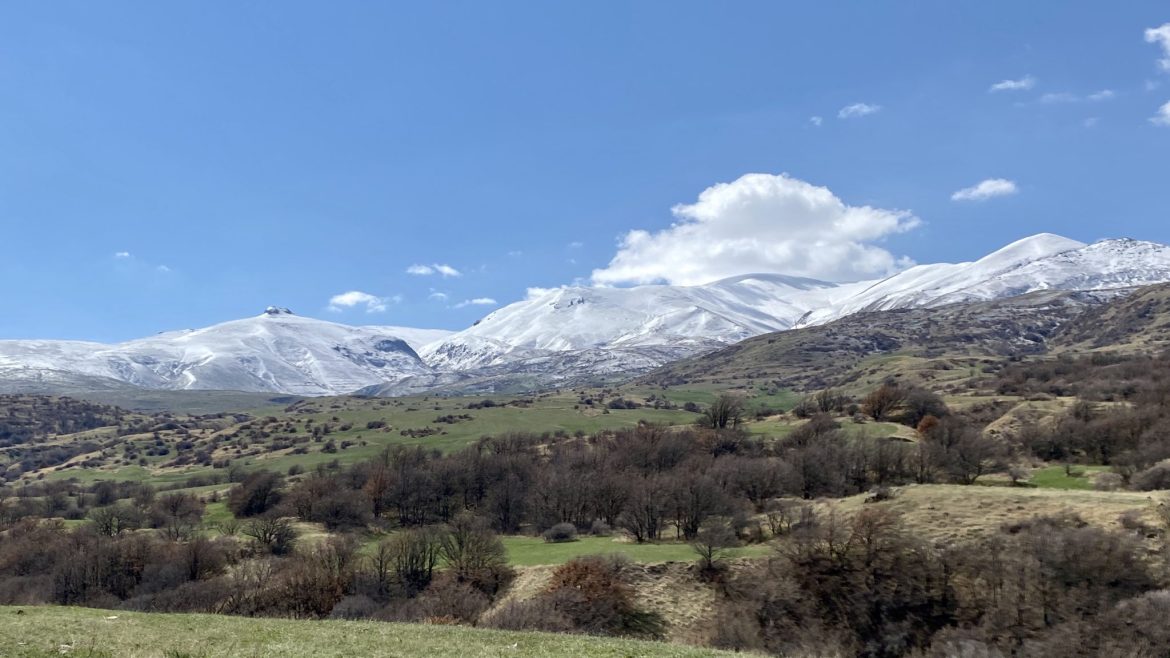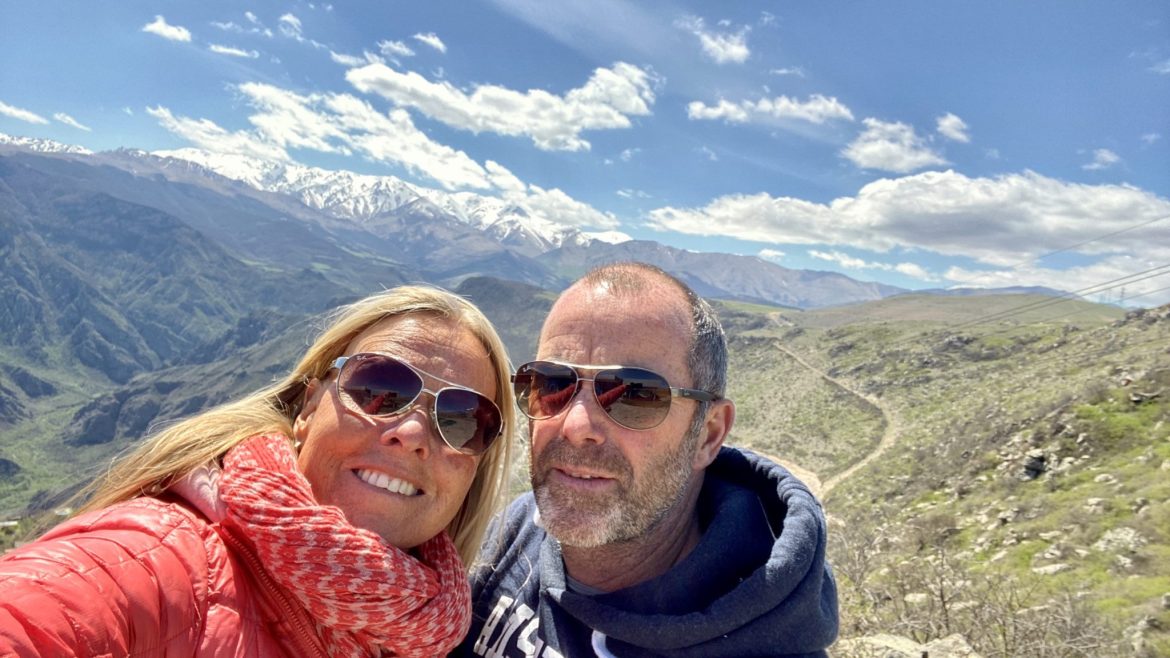Eastern Turkey, Armenia, Georgia, Azerbaijan
The people are fantastic.
We are in Iran now for all most 6 weeks and we want to share our first impressions. We are just travelers and we share our own experiences, yours might be different and please share them with us. We didn’t find any rules or laws on paper.
Friends and family warned us not to go to Iran. Even our own government advises against traveling to Iran. So we where excited and nervous when we arrived at the border from Armenia to Iran.
Kirstin put on here Hijab and there we went, expecting the worst.
But at the border, no searching for alcohol, no questions about our social media, nothing about drones, cameras, travel plans. Only a stamp in our Carnet the Passage (CDP) for our truck and on our visa (not in our passport) and then… tee and a warm welcome to Iran.
From this moment on Iran is like a warm blanket for us.
The people are the most hospitable we ever met, we get invited for tee, diner or even staying the night. Staying the night is only advised after you or your host inform local authorities on forehand.
In the last 6 weeks we got pulled over because they want to meet, shake hands, take pictures and give us fruit, sweets, bread and vegetables.
It is not possible for us to stop somewhere without an Iranian coming to us to start the mentioned rituals. Driving in the cities means moped’s driving next to us and handing us presents, cars honking all the time and drivers filming us. From the cars passing comes, “welcome to Iran”, “we love you”, children are hanging out of the car windows to wave and even old ladies giving us hand-blown kisses from their car.
The Iranians are so happy that we, as tourists, have come to their country. On many occasions the encounters get emotional. The people feel genuine in their behavior .
Women and men in Iran
We expected the women to be suppressed and down. But we meet the bravest women who want to have conversations , especially with Kirstin, take photos for Instagram and drink thea. Yes, the women have to wear Hijab and clothing that is wide and long enough to conceal the female form, buttocks and breast. Vincent is not supposed to shake hands with women. But we notice no difference in “rank” or position between men and women. We experience the relationships as completely equal.
We saw the police taken to a young woman not wearing here Hijab, but as soon as she put it on they kept talking and laughing with each other.
Kirstin feels very comfortable and safe and she goes even jogging by herself.
Because we heard that it is not allowed to sleep in one room as an unmarried couple we even have a marriage certificate with us. But really nobody is interested in things like that. But we stick to , better be safe then sorry, and so we also work by the rules, even in company from people who tell us to do otherwise.
Taarof; The Art of Persian Politeness
We had to get used to a typical Iranian custom, Taarof. We wanted to buy bread or take a taxi and they wouldn’t let us pay. But we learned that we should pay anyway. The ritual is that somebody offers you something like bread or diner and the receiver should decline. This goes on 3 or 4 times. If they still resist you can accept the gift.
This is done so poor people can offer you food with knowing that you won’t accept their offer, which they can not afford to give. So people often say things with politeness but don’t actually mean them. Our experiences is that we get offered fruits and food anyway and their is no way they let us turn down their offer.
Money and ATM’s in Iran
There is no working ATM or credit card for us in Iran. In the banks there is also no official exchange. We brought cash, Euros and dollars, and we exchange it at the gold traders in the bazaar in big cities. There seem to be a debit card available which we can charge via PayPal or cash, but we did not bother to buy this card. The cost are 7%.
We made a budget for ourselves for 7 weeks, but the problem is a big accident with ourselves, hospital, or with our truck. The kind of money you need in this situation we do not have with us, which is a risk. The Iranians pay almost 100% with their bankcard. We almost do not see any cash transactions. The customer gives his bankcard to the clerk, he asks the customer for his pin, and punches this in on his payment terminal.
Riaal or Toman. The banknotes are all Rial and 1.000.000 Rial is euro 2,- (okt 2023) But Iran uses Toman as his currency. Toman notes do not exist so the rial is used as Toman.
1.000.000 Rial is 100.000 Toman is euro 2,- we learned to holt our dumb on the last 0 of the banknote and then you see the value in Toman. Advice: when we ask the price, we always at that we we want it in Toman.
Military, Police and Politics
We did not see as many police as in Georgia or Armenia. We got stopped at road blocks twice and in one situation we got thee and the other time we received a large box with dates. The police was very friendly to us.
Because in Iran it is not clear where there is a military area or not, flying our drone at all was not recommended.
Sometimes locals want to talk about politics are the Iranian or European governments. We always stop this conversations directly at the start. We do not want to get involved in this. We are in Iran for the country and the people.
Phones and internet in Iran
After arriving in Iran we do what we always do when entering a country, buy a local simcard. After installing this card in my iPhone nothing happened. I could Google the word ‘test” and that is about it. To get our apps working, especially social media we where advised to install a VPN. Our western VPN’s dit not work so a new Iranian friend installed us an VPN for euro 4,- which should work for a month and 30Gb.
Internet is very cheap in Iran, every prepaid 10Gb is euro 1,- Via an app we can check our balance.
So after 1 month my phone stopped working. We can not use it as a hotspot either. Therefore we bought a router. The olax xxxx euro 60,- very stable and since it is small and has a battery we carry this router with us when we walk or bike.
We are paragliding and have our radios with us. Locals use them here too. We found it a good idea to take batteries and radio apart and store them separately. Same thing we did with our drone.
Diesel
One of our biggest challenges is to get diesel. Diesel is almost for free in Iran, but to prevent that truck drivers, the only ones using diesel, can trade this diesel they receive a diesel card with just enough balance to buy their necessary diesel. As a tourist we do not get such a card, so for us the only way to get diesel is to beg for it. When we are lucky we get 50 liters, but this is only enough for 200 km. So for our planned 5.000 km’s there will be a lot of begging.
The good thing is; we get diesel often for free and sometimes we have to pay euro 2,- for 50 liters. In the big cities they know our prices in Europe and the tank employee jumps in to ask more money. In one occasion the police interfered and let the gas station sell us 50 liters because the gas station did not want to sell us some before.
Camping
We do almost only wild camping. This is because we have our truck, we love to camp outside cities and we feel totally save. Sometimes people come visit our truck, always with the offer to come stay at their houses.
There are almost no non-Iranian tourists in Iran and that is a pity. The people are so nice, the infrastructure very good and the landscape is fantastic. We have had not one moment that we did not feel save.
Consumer goods
Another thing that totally surprised us is the fact that the all stores are full. You can buy anything you need in your daily lives. Everything is available in abundance. Iran makes many products themselves or imports them from mainly China and Russia. This means also that it might not be easy to get typical western made products, like spare parts for your bike or car/truck.
Border crossing Iran
More specific info on our border crossing. See our blog about this subject.










































































































































































































